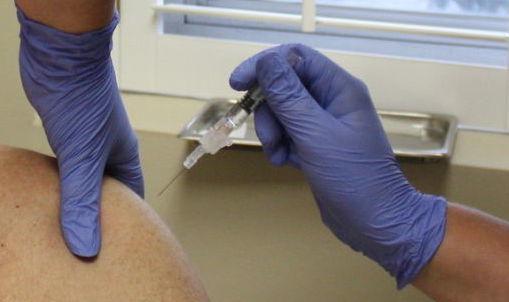Health officials: 'WV students are not exempt from immunization,' prepare for upcoming school year - WV News

CLARKSBURG — Students starting school and those continuing school in West Virginia are not exempt from mandatory immunizations unless medically eligible, according to the state Department of Education and Department of Health and Human Resources.
Area officials are urging students and parents to make necessary immunization appointments to avoid students being banned from school.
State law and regulations require that all children entering school in West Virginia for the first time in grades K-12 show proof of immunization against tetanus, diphtheria and pertussis (the Tdap vaccine ), polio, measles, mumps, rubella, varicella and hepatitis B, unless medically exempted.
Medical exemptions must be requested by a physician who has treated or examined the child, and the exemptions must be reviewed and submitted to the immunization officer of the state Bureau for Public Health, according to a release from the DHHR.
“West Virginia has some of the strongest and most strict requirements in the entire country,” said Jody Sperry, Harrison County Schools health coordinator and registered nurse at Robert C. Byrd High School. “Parents cannot philosophically or religiously opt themselves out of immunizations in West Virginia.”
Sperry said each year there is another proposal that challenges the state’s immunization requirements, but they remain in place because officials believe it’s important to protect students who cannot receive immunizations due to being immuno-compromised, having cancer or having reactions to the vaccines.
Students going into seventh and 12th grades have to receive additional vaccinations as a requirement of state law. Seventh-graders will be required to receive meningitis and Tdap immunizations, while 12th-grade students will need a meningitis booster.
“Harrison County school nurses sent notices throughout the year last year notifying parents of updates needed for incoming seventh- and 12th-grade students, so parents should not be caught off-guard,” Sperry said.
School nurses generally give parents and students a “grace period” after classes begin, but if schools do not have a record of immunizations by Sept. 3, students will be sent home and will not be allowed to return until proof is provided, Sperry said.
The Harrison-Clarksburg Health Department offers immunizations every Tuesday from 9-11 a.m. and 1-3 p.m., according to Nurse Director Donna Riffle. If immunizations are needed on any other day of the week, appointments must be made.
“We find that a lot of parents wait until the week that school starts or when their children get turned away from the school for not having their required vaccinations,” she said. “Make sure that you are staying ahead of the crowd and getting these requirements taken care of prior to the school year starting.”
Riffle said the Health Department does not turn away any children who are looking to receive their vaccinations. It even has programs in place to assist uninsured children.
The “Vaccines for Children” program available at the Health Department allows children without health insurance or other eligible qualifications to receive the proper vaccines, Riffle said.
In Lewis County, immunization appointments can be made at the Health Department from 8 a.m. to 3:30 p.m. Monday, Tuesday, Wednesday and Friday, according to registered nurse Crystal Lough.
The Lewis County Health Department also offers the “Vaccines for Children” program to children who are on Medicaid, who are uninsured or underinsured or who are American Indian or an Alaskan native, Lough said.
Immunization is the best form of disease prevention, and requirements are the same throughout West Virginia, Lough said.
“Vaccinations are not determined by the county,” she said. “They are statewide, and children are not exempt unless they qualify medically.”
By staying up to date on vaccinations, children will not have to miss school to receive ones that are required, Lough said.
West Virginia students entering preschool, kindergarten and second, seventh and 12th grades in 2019-20 also are required to submit proof of a dental or oral health exam in addition to a comprehensive health exam.
Sperry said the state Department of Education determined that the health-exam requirement would solve the problem of students only seeing a doctor when they’re taken to an urgent care facility when sick.
“The idea behind this was to find students medical and dental homes,” she said. “Urgent cares, while easily accessible, are like a Band-Aid, and children are never seen when they are well.”
According to a state survey several years ago, only a small percentage of Medicaid and medically assisted students were receiving well-child exams, Sperry said.
Well-child exams are annual comprehensive health assessments that test the development of children, in addition to their vision and hearing, she said.
Additionally, parents are reminded to contact their school system about administering necessary medications for chronically ill students. Parents of children with chronic illnesses, including seizures, asthma, diabetes, hypoglycemia, migraines and allergies, as well as other rare chronic illnesses, will be required to submit these forms.
https://ift.tt/2GEr9EV

Comments
Post a Comment